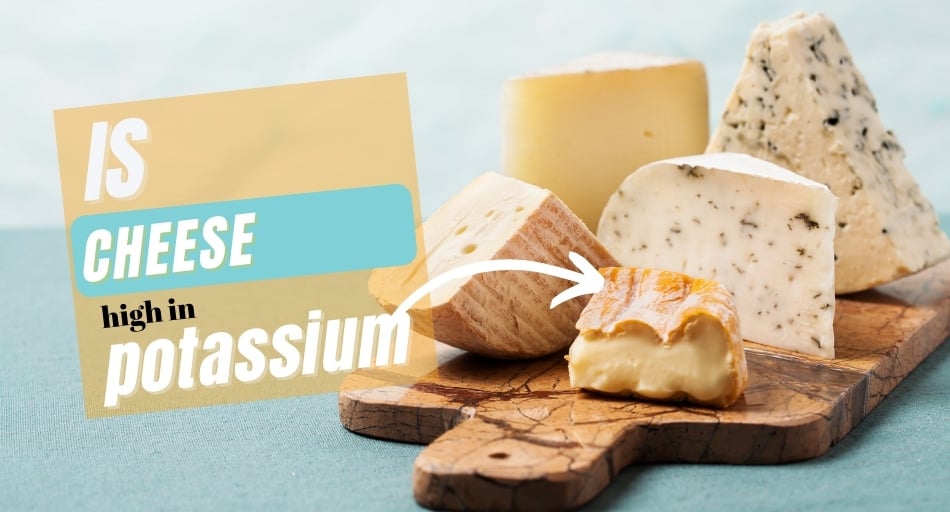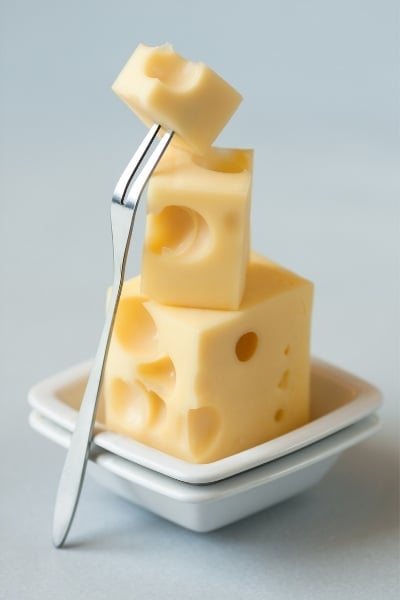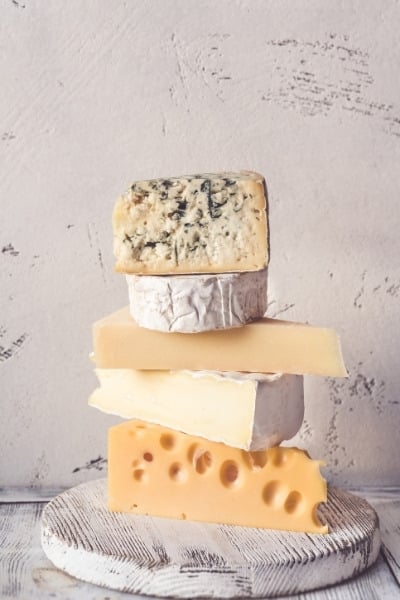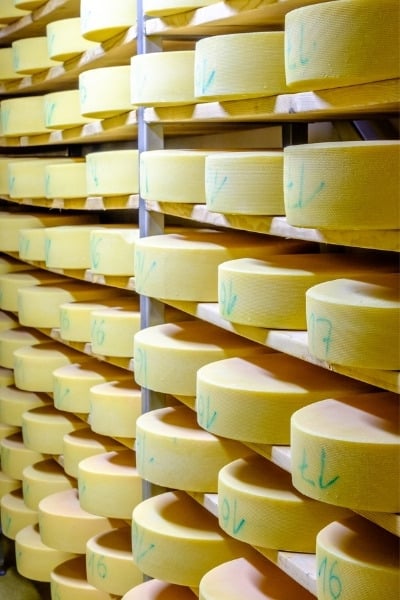Cheese is a good source of protein, phosphorus, zinc, and probiotics. It also has high levels of saturated fat and cholesterol which can lead to weight gain and other health problems if eaten in excess.

But is cheese high in potassium?
Table of Contents
Is Cheese High in Potassium?
Cheese does not contain too much potassium. The potassium in cheese is not considered high as compared to other foods. It is a good source of the mineral, but it should not be depended on as the only food to provide potassium in the diet.
Some cheeses have less potassium than others so they may be a better choice for people with kidney disease.
Potassium is an important mineral that helps regulate fluid balance, nerve impulses, and muscle contraction. It also helps keep blood pressure levels stable and promotes healthy bones.
Can You Check Your Potassium Level at Home?
How Much Potassium is in Cheese?
A one-ounce serving of cheese has about 30 milligrams of potassium. This is not considered high as a human being requires 4,700 milligrams of potassium a day.

Cheese can be part of a healthy diet, but it is not the only food that should be included. Other foods that are good sources of potassium include fruits, vegetables, and legumes.
However, eating too much cheese can contribute to weight gain, so it should be consumed in moderation.
Health Benefits of Cheese
Cheese is so much nutritive and has a lot of health benefits which include:
Cheese is a good source of protein
Proteins are very essential in our bodies as they help in cell growth and division. This is very important in replacing worn-out aging cells. Also when one is injured, proteins help in repairing the tissues.
Cheese has about 7 grams of protein per ounce. Small children, pregnant women, and people who engage in sports need more protein for tissue repair and growth and cheese can be a good source for them.
Cheese has a high calcium content
This is important for strong bones and teeth. It is also helpful in preventing osteoporosis and other bone diseases in later life. Cheese has about 200-300 milligrams of calcium per ounce.
Calcium is also necessary for the functioning of the heart and other muscles. Pregnant women and people who are lactose intolerant should consider taking calcium supplements but they can also get their calcium from eating cheese.

Cheese is rich in Vitamin B12
This vitamin is important in the production of red blood cells and the prevention of anemia. It is also helpful in the functioning of the nervous system.
Cheese has about 2.6 micrograms of Vitamin B12 in every ounce. This is a good amount and can easily meet the daily requirement of 2.4 micrograms.
Cheese also provides phosphorus
Phosphorus is another mineral that is found in cheese. It helps in the formation of bones and teeth. It also helps in the activation of enzymes and the transport of energy within the body.
Cheese has about 120-240 milligrams of phosphorus per ounce. Phosphorus inefficiency can lead to weak bones and tooth decay. A child’s diet should have adequate phosphorus to promote good bone health.
Cheese is also a good source of zinc
Zinc is another mineral that is found in cheese. It helps in the healing of wounds and also in the maintenance of the sense of taste and smell.
Cheese has about 1-2 milligrams of zinc per ounce. Zinc is also necessary for the growth and development of a child. Lack of zinc in the body can lead to stunted growth.

Cheese contains probiotics
Cheese is a good source of probiotics. Probiotics are beneficial bacteria that help in the digestion of food and also in the absorption of nutrients.
They also help in the prevention of diseases caused by bad bacteria. Cheese has about 1-2 billion probiotics per ounce. This is a good amount and can help in the maintenance of good health.
Cheese is high in saturated fat and cholesterol
Cheese is a high-calorie food and it is high in saturated fat and cholesterol. Too much cheese can lead to weight gain and other health problems such as heart disease, stroke, and diabetes.
A person who wants to maintain a healthy weight should not eat too much cheese. Excess fats are stored in the body to provide energy when it is not needed and this can lead to weight gain.
Is Cheese Good for People With Kidney Disease
Many people with kidney disease are told to limit their intake of protein, potassium, and phosphorus. Cheese is a good source of protein and phosphorus, but it is also high in saturated fat and cholesterol.
Too much protein is not good for a person with kidney disease because it can overload the kidneys in the process of excreting urea which is formed in the process of deamination (the process by which excess amino acids are converted into urea) Urea may cause blockage of the tiny tubes in the kidneys that help to filter blood and it can also cause an increase in blood pressure.
Phosphorus is also dangerous to people with kidney disease. Too much phosphorus can cause the body to hold on to water and this will increase the workload of the kidneys.
This can lead to a condition called hyperphosphatemia in which there is an accumulation of phosphorus in the blood.

Is There a Way to Reduce the Amount of Potassium in Cheese
There is no known method of reducing the amount of potassium in cheese. however, Some cheeses have less potassium than others.
For example, cheddar cheese has about 113 milligrams of potassium per ounce while Swiss cheese has about 153 milligrams of potassium per ounce. Ricotta cheese has about 71 milligrams of potassium per ounce.
What is Cheese?
Cheese is a dairy product that is made by coagulating milk into curds. In the process of making cheese, milk is heated and enzymes are added to it. These enzymes work together to thicken the milk, break down the milk proteins, and form curds.
The curds are then strained from the whey and placed into molds where they are allowed to age and develop flavor. Curd is the solid material that is obtained by coagulating milk into cheese.
The curds are then strained from the whey and placed into molds where they are allowed to age and develop flavor. Cheese is very nutritive and may contain potassium.
Don't know which foods are high in potassium? Read our article, 15 Best Food Sources of Potassium. We also have a guide to this important mineral: Potassium 101: All You Need To Know About Potassium.
